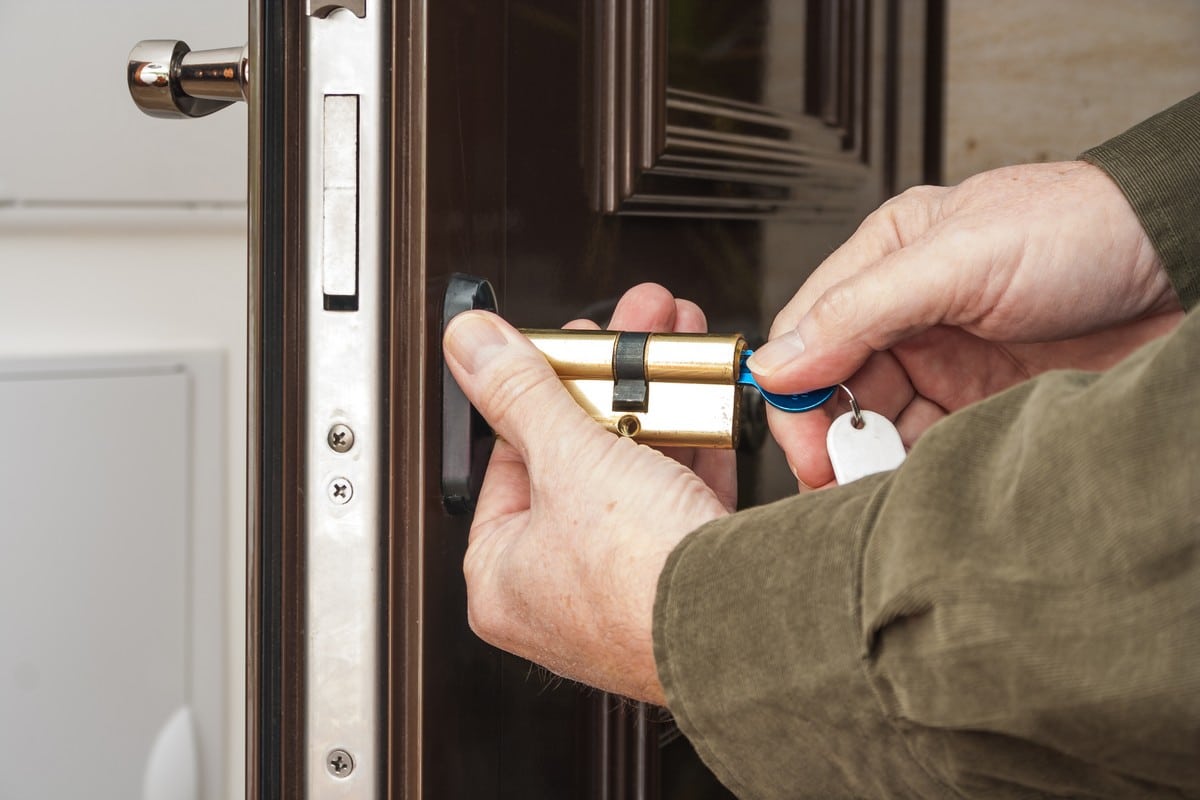 Locksmith’s Guide: Locks to Consider for Replacement
Locksmith’s Guide: Locks to Consider for Replacement

Locks are an essential part of your home’s security, and like any other piece of hardware, they can wear out over time. But how do you know when it’s time to repair a lock versus replacing it entirely? Making the right decision depends on the specific problem, the age of the lock, and your security needs. Here’s a locksmith’s guide to help you determine when to repair your lock and when it’s time to consider a full replacement.
Signs You Should Repair Your Locks
Not all lock problems require a complete replacement. Many issues can be resolved with simple repairs, saving you time and money while maintaining security.
Common Repair Scenarios:
- Key is Difficult to Turn: Over time, dirt, dust, and grime can accumulate inside the lock, causing it to jam or become difficult to turn. Often, cleaning the lock or applying lubricant can fix the issue.
- Loose Lock or Handle: If your door lock or handle feels wobbly or loose, it could be due to worn screws or internal parts. In most cases, tightening screws or replacing minor components will restore the lock to full function.
- Misaligned Strike Plate: If your door isn’t latching properly, the strike plate may be misaligned. This can usually be fixed by adjusting the strike plate or door hinges rather than replacing the entire lock.
- Worn or Broken Key: Sometimes, the problem isn’t the lock, but the key itself. If your key is bent, worn out, or damaged, having a new key cut can solve the problem without needing to replace the lock.
When to Replace Your Locks
While many lock issues can be repaired, there are times when replacing the lock is the better (or necessary) option, especially when security is a concern.
Replacement Scenarios:
- Lost or Stolen Keys: If you’ve lost your keys or they’ve been stolen, replacing the locks is the safest option. This prevents unauthorized access to your home, as you can’t be certain who may have your keys.
- Lock is Severely Damaged: Locks that are physically damaged or broken—due to an attempted break-in or wear over time—often can’t be repaired effectively. A damaged lock compromises your security and should be replaced immediately.
- Old or Outdated Locks: If you have older locks that use outdated technology, replacing them with newer, more secure options is wise. Modern locks, such as deadbolts or smart locks, offer enhanced security features that can better protect your home.
- Frequent Lock Problems: If you find yourself repeatedly dealing with the same lock issues, such as jamming or misalignment, it’s often more cost-effective to replace the lock entirely rather than continue with frequent repairs.
- Upgrading Security: If you’re looking to upgrade the security of your home, replacing your locks with high-security options is a proactive step. This can include installing locks with anti-pick or anti-bump features, or even keyless entry systems.
Repair vs. Replace: How to Decide
When trying to decide whether to repair or replace a lock, consider both the extent of the problem and the security needs of your home.
Factors to Consider:
- Cost of Repair vs. Replacement: In many cases, repairs are less expensive than replacing the lock. However, if repairs are frequent or temporary, a replacement may be a better long-term solution.
- Age of the Lock: Older locks are more prone to wear and tear, and repairs may only provide a short-term fix. If your lock is several years old and experiencing problems, replacing it may be more reliable.
- Security Concerns: If your primary concern is security—such as after a break-in or lost keys—replacement is the best option to ensure your property is fully protected.
Types of Locks to Consider for Replacement
When it’s time to replace your locks, you’ll want to choose a high-quality lock that fits your security needs and budget. Here are a few options:
- Deadbolts: Deadbolts are one of the most secure types of locks, providing an added layer of protection against forced entry.
- Smart Locks: Keyless entry systems allow you to unlock your door using a code, smartphone, or fingerprint. These locks also offer convenience and remote access.
- High-Security Locks: Locks with advanced features such as anti-pick pins, drill-resistant plates, and bump-proof technology are ideal for enhancing home security.
When to Call a Locksmith
If you’re unsure whether your lock needs to be repaired or replaced, or if you’re dealing with a complex issue, calling a professional locksmith is the best course of action. A locksmith can assess the condition of your lock, recommend the best solution, and ensure that your home remains secure.
By understanding when to repair or replace your locks, you can keep your home secure and save money on unnecessary repairs or upgrades. Whether you’re addressing a minor issue or upgrading your home’s security, making the right choice will ensure peace of mind and protect your property.

